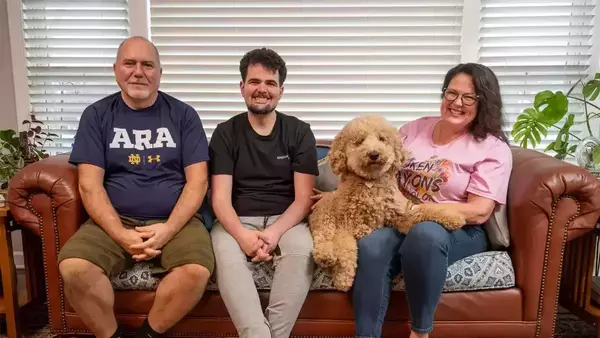
You don’t know what it is to be an advocate until you are one.
That was never more clear to Harry and Gail Koujaian than when their 5-year-old daughter, Hayley, began having difficulty with motor function, verbal communication, and sight words. Then she had her first seizure.
It took six years of patient advocacy—challenging inaccurate diagnoses, meeting with doctors, pushing for medical tests, becoming “parent scientists,” scheduling surgeries, and planning regular therapy sessions—before the Koujaians would get the correct diagnosis: Niemann-Pick disease type C.
Niemann-Pick disease type C, or NPC, is an inherited, progressive genetic disorder caused by the body’s inability to transport cholesterol and other fatty substances inside of cells. The result is an irreversible dementia-like disease that affects a child’s ability to walk, talk, swallow, and think. The disorder is very rare, affecting one in 120,000 people, and death typically occurs before or during adolescence.
Hayley was diagnosed with the terminal disorder at the age of 11. Her older brother, Alec, was diagnosed shortly thereafter at 13.
The Koujaian family’s experience is all too common. With more than 7,000 different diseases classified as “rare,” 10 percent of the population is likely to encounter a diagnostic odyssey of unnecessary tests and wrong diagnoses in their push for effective care.
Originally published by at news.nd.edu on February 29, 2024.